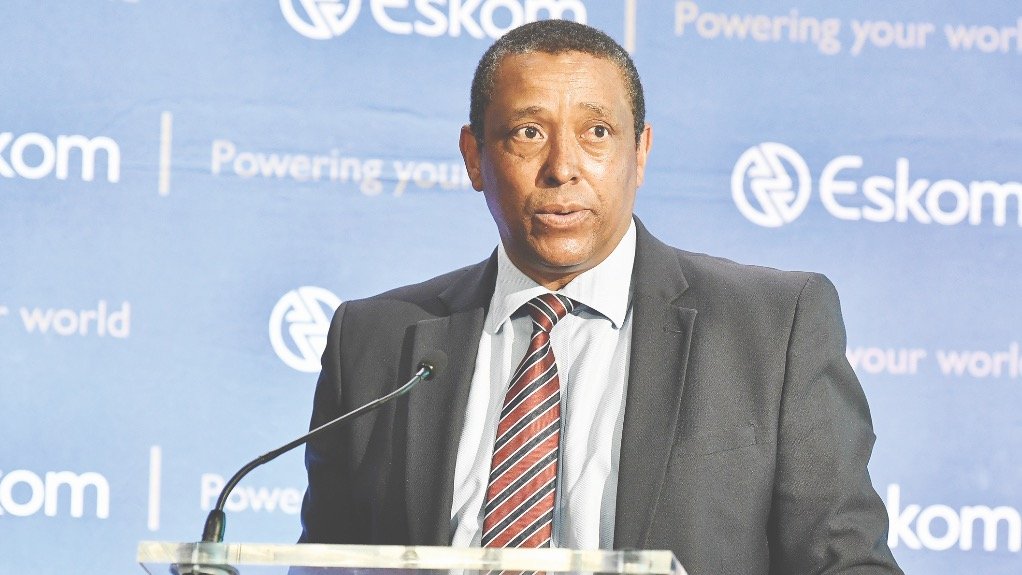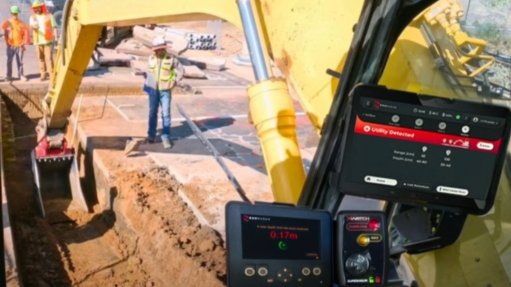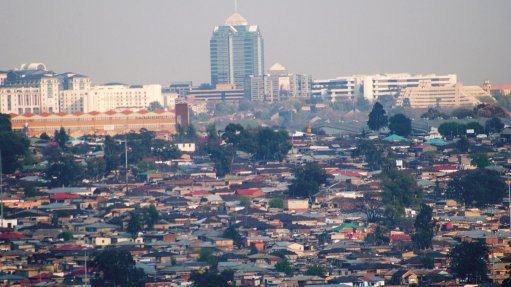Eskom expects to roll out virtual wheeling scheme before end of 2024


Eskom group executive for distribution Monde Bala
Photo by Creamer Media Chief Photographer Donna Slater
Electricity utility Eskom expects to formally roll out a virtual wheeling scheme, which it has been piloting with mobile telecoms group Vodacom since August, to the rest of the market before the end of 2024.
The contracting platform will allow for one or more generators to transact with multiple customers that have operations distributed across the country, including those whose facilities are located in municipal distribution areas and connected to low-voltage networks.
Eskom group executive for distribution Monde Bala says that the electricity crisis, as well as some of the reforms that have been implemented to tackle it, including the ability of generators of any size to proceed without a licence and sell electricity through the grid, has highlighted the need to move beyond traditional wheeling, that typically involves one generator and one offtaker.
The State-owned utility has, thus, been working with Vodacom for the past 15 months on a virtual wheeling framework to respond to those customers eager to secure renewable energy for facilities that are too small or too widely distributed to enter into one-on-one power purchase agreements that had contract terms of up to 20 years.
Over the period, Vodacom subsidiary Mezzanine has developed an open platform that is able, using smart meters, to aggregate consumption data across multiple sites, including those within municipal boundaries, so as to generate a single electricity bill for the buyer, which can be a corporate or a trading entity.
Vodacom has set a net-zero goal for 2030 and is seeking to find a way to integrate renewable energy across its 15 000 base station and data-centre sites.
The single bill includes both Eskom and independent power producer (IPP) electricity charges, which are paid to the municipality and Eskom, as is the case currently under existing billing arrangements. A refund is then generated in favour of the buyer, which remunerates the IPPs.
Vodacom South Africa CEO Sitholizwe Mdlalose stressed that the Mezzanine platform, which is undergoing testing using the solar electricity produced at Vodaworld in Gauteng, has not been tailored specifically to meet the telecom group’s needs and will be open to other users.
In addition, it is anticipated that competing aggregation solutions will also be incorporated as the concept gains market acceptance.
Eskom senior adviser for electricity pricing Onicah Rantwane stresses that the product is heavily reliant on the deployment of meters that are able to provide time-of-use readings, as well as the associated information communication technology systems needed to collect and process that data.
Mezzanine has developed the data aggregation aspect of the solution, and is currently working on what it calls a “settlement hub”. However, Eskom is likely to proceed initially on the basis of the manual settlement of accounts.
Rantwane stresses that the model has been designed to integrate with existing Eskom and municipal billing systems, as well as for revenue neutrality.
The concept does, thus, not depend on amendments to any electricity supply agreements, which will remain intact.
That said, the creditworthiness of municipalities, many of which owe Eskom billions of rand in outstanding debts, could limit deployment as Eskom will have to receive payment before it will refund the buyer or the trader.
While various stakeholders believe the framework is a positive development for creating new addressable markets for renewable electricity, the weak financial position of many municipalities, together with Eskom’s strict position in relation to outstanding debt, could affect uptake.
Nevertheless, the appetite for the solution is expected to be strong, with virtual wheeling especially attractive to companies such as retailers and manufacturers that have decarbonisation commitments but limited options to integrate renewables across their multiple stores and factories in various locations.
Bala says the product is fully aligned to the changes under way in the electricity market, including the shift towards a more decentralised electricity supply industry.
It is also in line with Eskom’s own restructuring, with an independent distribution entity currently being established alongside the National Transmission Company South Africa and a generation entity.
The distribution business, which is expected to become operational in 2024, will include network services, a retail business, and system operations, including trading functions.
“The virtual wheeling framework can help accelerate the energy transition and support South Africa’s decarbonisation goals,” Bala argues, adding that it could also lay the basis for greater sustainability in the distribution sector, which is facing significant operational and financial pressures currently.
Article Enquiry
Email Article
Save Article
Feedback
To advertise email advertising@creamermedia.co.za or click here
Press Office
Announcements
What's On
Subscribe to improve your user experience...
Option 1 (equivalent of R125 a month):
Receive a weekly copy of Creamer Media's Engineering News & Mining Weekly magazine
(print copy for those in South Africa and e-magazine for those outside of South Africa)
Receive daily email newsletters
Access to full search results
Access archive of magazine back copies
Access to Projects in Progress
Access to ONE Research Report of your choice in PDF format
Option 2 (equivalent of R375 a month):
All benefits from Option 1
PLUS
Access to Creamer Media's Research Channel Africa for ALL Research Reports, in PDF format, on various industrial and mining sectors
including Electricity; Water; Energy Transition; Hydrogen; Roads, Rail and Ports; Coal; Gold; Platinum; Battery Metals; etc.
Already a subscriber?
Forgotten your password?
Receive weekly copy of Creamer Media's Engineering News & Mining Weekly magazine (print copy for those in South Africa and e-magazine for those outside of South Africa)
➕
Recieve daily email newsletters
➕
Access to full search results
➕
Access archive of magazine back copies
➕
Access to Projects in Progress
➕
Access to ONE Research Report of your choice in PDF format
RESEARCH CHANNEL AFRICA
R4500 (equivalent of R375 a month)
SUBSCRIBEAll benefits from Option 1
➕
Access to Creamer Media's Research Channel Africa for ALL Research Reports on various industrial and mining sectors, in PDF format, including on:
Electricity
➕
Water
➕
Energy Transition
➕
Hydrogen
➕
Roads, Rail and Ports
➕
Coal
➕
Gold
➕
Platinum
➕
Battery Metals
➕
etc.
Receive all benefits from Option 1 or Option 2 delivered to numerous people at your company
➕
Multiple User names and Passwords for simultaneous log-ins
➕
Intranet integration access to all in your organisation


















